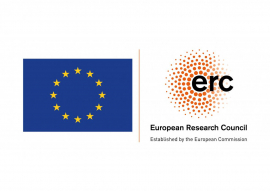Project summary
The overarching goal of this project is to develop a coherent set of econometric methods to deal with unobserved heterogeneity in the analysis of social interactions between agents. Such heterogeneity is well recognized to be important. It is often of great interest to document the degree of heterogeneity, evaluate its impact, and uncover the existence and form of any complementarities that may exist between agents. With the growing availability of network data, questions of this kind are increasingly being asked in applied work. The development of appropriate econometric tools to answer them has, however, not followed suit. If anything, recent theoretical work has pointed at substantial difficulties with the so called fixed-effect approach currently serving as the workhorse tool.
This project recognizes the potential of taking a random-effect view. For settings where agents interact in pairs, such a view has received some attention in the literature. However, to date, it struggles with issues of identification, estimation, and computation. We will develop a new nonparametric approach that provides a solution to each of these three issues. We will next venture forward and extend this framework to situations where agents interact in larger groups. Both collaborative and non-collaborative settings will be considered, thereby covering team production, competition, and peer effects. Special attention will be given to recovering treatment effects in the presence of social interactions, where interference on unobservable confounders is an issue. For situations where data limitations prevent a fully nonparametric approach, instrumental-variable methods that build on flexible functional form restrictions will be developed.
The statistical properties of the proposed estimators will be derived, software implementation will be provided, and empirical illustrations will be presented to highlight the usefulness of the methods.
Description du projet: Des outils économétriques pour analyser l’hétérogénéité dans des modèles de réseaux sociaux
Compte tenu de la multitude d’applications de réseaux sociaux, l’analyse des interactions sociales est devenue un domaine de recherche essentiel. Les modèles d’interaction des personnes permettent de comprendre comment celles-ci s’influencent mutuellement. Les modèles à base d’agents sont largement utilisés pour l’analyse de ces réseaux sociaux. Le réseau est construit de bas en haut, en affectant des attributs à des entités décisionnelles autonomes appelées "agents" qui sont, par nature, hétérogènes. La prise en compte de l’hétérogénéité non observée constitue un défi, entravé par des problèmes d’identification, d’estimation et de calcul. Le projet NETWORK, financé par l’UE, entend mettre au point un nouveau type d’approche non paramétrique qui répond à ces trois problèmes. Ses outils économétriques décriront la manière dont un changement dans un attribut d’un individu affecte les attributs d’autres individus, en tenant compte de l’hétérogénéité non observée par le biais d’une approche à effets aléatoires.
Contact in TSE: Koen Jochmans

